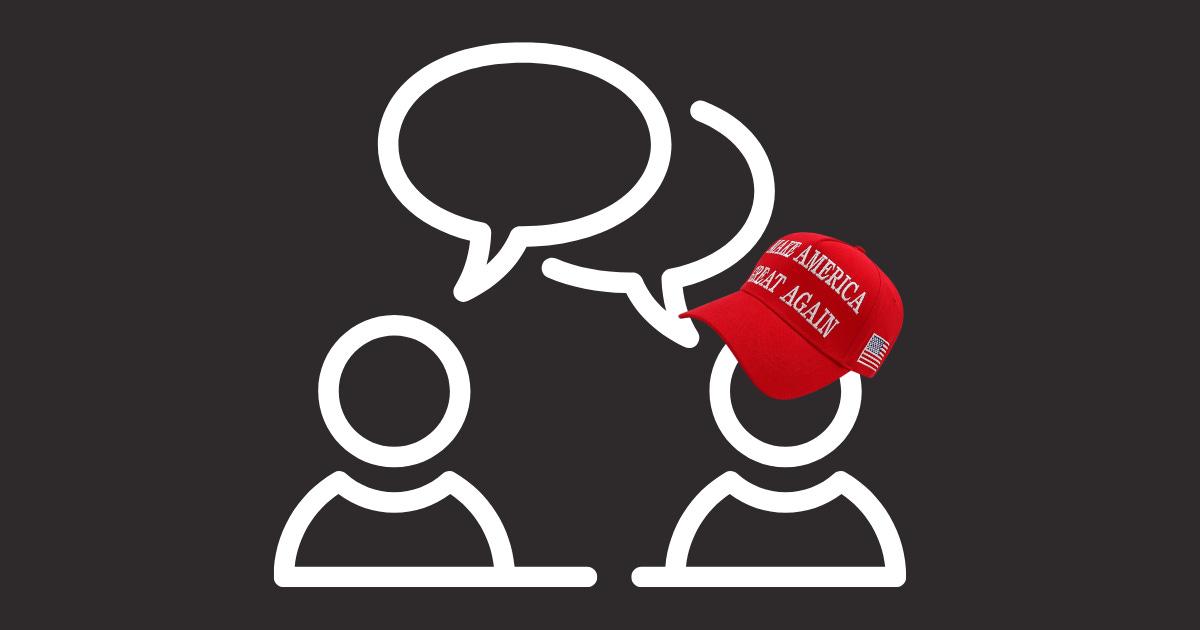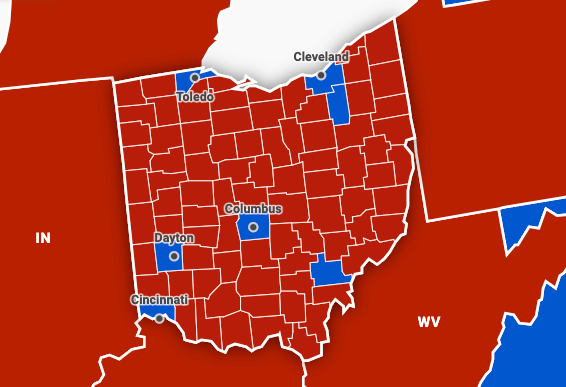TCC #39: It's time for sustainability to diversify
What sustainability comms is missing is your MAGA uncle's two cents (yes, really)
Okay, I'm aware I'm a bit late to the party here — but man, if I haven't been REELING since the US election results were announced.
I keep coming back to the same fundamental question.
Is anything we sustainability folks are doing even working?
“In the face of the most authoritative opinion poll of all—an election—it’s no longer possible for purpose advocates to claim that the purpose agenda is driven by upward pressure from an impatiently progressive generation.”
Hi, it’s me, a purpose advocate. We’ve been wrong.
covered this well last week. The ‘average’ consumer is a) not as plugged in as we would like to think and b) even if they are, they’re unable or unwilling to muster up the attention or energy to care about what, to them, is abstract ‘save the planet’ woo woo crap.For the last three weeks, I’ve done very little beyond spiraling about echo chambers, mourning my crushed sense of reality, and, of course, my civic duty (debunking wildly harmful pro-fossil fuel X posts sent casually to my family group chat).
I live in Cleveland, Ohio. One of the (very) few blue blobs swimming in a sea of red. For those who don’t know, we used to be a swing state. Now we’re a safe bet for Republicans. Sherrod Brown, who represented Ohio in Congress for more than 30 years, lost to a Trump loyalist. Those in my circle thought he was safe. (A testament to how siloed our bubbles really are.)
And it’s not just Ohio. Almost every damn county in the country shifted red.
This is not a blog about the election results. It’s a blog about the fact that these results make it incredibly clear that the left has a marketing problem.
And critically, so does sustainability.
When over half the population opts to vote for a man (can we call him that?) who repeatedly refers to the mortal threat that is climate change as a ‘hoax’ — we need to have a long think about where we went wrong.
I don’t know how to fix this. Trump supporters don’t care about a list of 100 environmental rules rolled back during his first administration. They only care that he promised to return gas prices to under $2 a gallon. Is it true? I don’t know, I’m no economist. The experts seem to think it unlikely.
But as the election results show us, a promise doesn’t need to be true or even plausible to capture the attention of the broader public. It just needs to acknowledge the pain present in the average citizen’s life. Right now, for many, that pain is in the pocketbook.
And sustainability communications isn’t speaking to that.
We must start by recognizing that we, as marketers, have been wildly out of touch with the ‘average’ consumer. And my god, that’s our whole job. We need to speak to their pains! Their wants! Their jobs-to-be-done! We’ve failed miserably.
I don’t have all the answers. If you have any to suggest, please share them in the comments. But I do know one thing for certain:
What sustainability needs is to have people involved (and advocating for it!) — who understand perspectives and value systems that differ from our own. These things come from exposure: to life, to systems, to people (notably those who disagree with you), to jobs, to different parts of the value chain and on and on and on.
Diversity is a good thing. We know this! We’re just not very good at preserving it.
So. How do we bring these people into the fold?
Maybe it involves (horror of horrors) engaging your MAGA uncle at Thanksgiving dinner tomorrow. Ask what it would take for him to care about sustainability. Then listen to what he says.
Don’t get me wrong. We’re going to need change at the policy level to move forward meaningfully. Corporate sustainability doesn’t work unless everybody does it. Right now, we’re barely scratching the surface. I often worry whether it’s even working at all. Clearly, this won’t happen anytime soon here in the States.
(And if hardly anybody is even asking for it… )
But at this moment, what else do we have? New systems are necessary, yes. Action is still needed in the interim.
Short term, I fear we have dark days ahead of us. Long term, I’m optimistic.
Our job now is to diversify. We cannot find a way forward (with what is, apparently, a majority of the population) if we can’t figure out how to meet their needs. We need not agree with their values but we must understand them. That means finding common ground.
Sustainability has not won over the hearts and minds of the people. We have our work cut out for us. Let’s start now.





Very well said, and very sobering. I'm in the UK so have quite a different context and can only look over in alarm at the US right now. But many issues apply to us over here too.